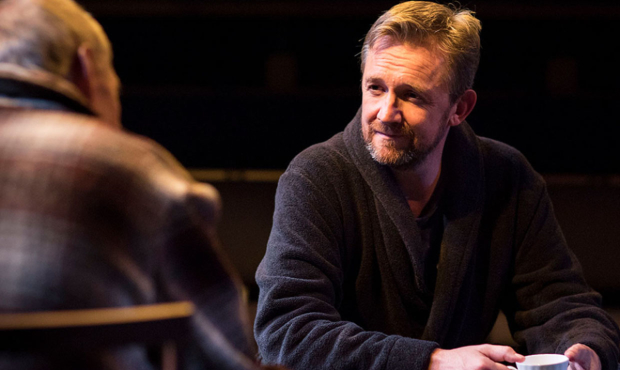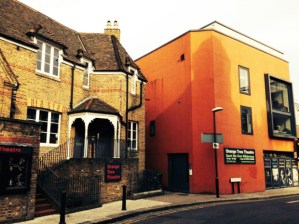Review: The March on Russia (Orange Tree Theatre)
David Storey’s 1989 play is revived by Up In Arms theatre company

© Helen Maybanks
The title implies an army on the move, or a political insurgence. But the journey that takes place in David Storey’s The March on Russia is to the heart of family relations – in particular to the frayed ties between a generation of working-class parents who scrimped, saved and sacrificed for the children, and those offspring who move and grow away.
Nothing much happens, but everything is expressed. Tommy and Hilda Pasmore are celebrating their diamond wedding anniversary in their retirement bungalow on the East Coast of Yorkshire. He’s a retired miner who spent 45 years down the pit and she has brought up three children on next to nothing and this is the kind of emotionally reticent home where the greeting "Grand having you here" counts as fulsome.
Yet when their three grown up children all separately decide to join them on their big day, the bickering with which the long-married couple fill their days is stripped back to reveal something harsher and more full of despair; a lack of companionship that has eaten away any love and a resentment of their children’s failure to appreciate the foundations of their own success.
There’s a strongly autobiographical element in the play. Storey, who died this March, was a miner’s son who, like the writer son Colin in the play, bought his parents a bungalow on the back of his big success The Changing Room. It is perhaps that which makes this play feel so brutally truthful. It’s sharp and funny in its depiction of the patterns of family life kept afloat on a sea of tea, but bleak too as it peels away the platitudes to find the sadness beneath.
You see this particularly in the figure of Mr Pasmore, beautifully played with a sort of game resignation by Ian Gelder. He comes to life when he remembers his time in the Royal Navy Air Force in 1917, travelling to the Crimea to try to save the Tsar, a bright spot of colour in a life of servitude.
Gelder tells the story wonderfully, managing to balance the poetry in Storey’s writing with the rhythm of speech. Elsewhere in Alice Hamilton’s production for the Up In Arms theatre company, the sense of speeches being made rather than words being spoken is sometimes too strong. But her direction is gently sympathetic to the play’s quiet, slow unfolding and designer James Perkins fills the Orange Tree’s tiny stage with a simulacrum of a real home, down to the fire, constantly tended.
In this mundane setting, a convincing family emerges. Sue Wallace is stern and sharp tongued as the resistant Hilda, for whom a dirty towel has become enough to ruin a marriage. Colin Tierney, Sarah Belcher and Connie Walker lend strong support as the children, all in clearly differentiated ways struggling with dislocation and loss.
The revival is a reminder of just how good and pertinent a playwright Storey was. The situation he describes may have been overtaken by the new world that was just around the corner when The March on Russia was premiered in 1989, but the emotions and sentiments ring loud and true in a land of Brexit. His darkly compassionate voice deserves to be heard – and listened to.
The March on Russia runs until 7 October at the Orange Tree Theatre














